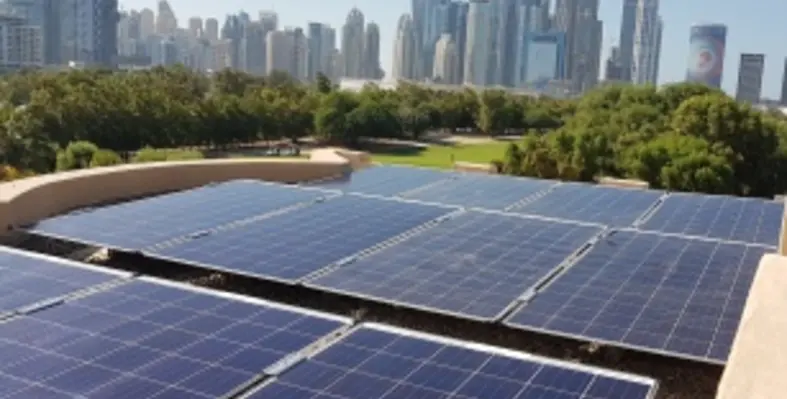Seven questions that should be asked before installing solar panels
Homes and businesses across the world are transitioning away from fossil?fuelled electricity grids towards clean energy. Property owners need to remember that the amount of solar energy needed depends on consumption, so it makes sense to trim usage as much as possible before installation. Start with an energy audit and look for efficiency upgrades before drawing up blueprints
Here are seven questions to ask before installing solar panels.
1. Is there a roof, car park or a canopy that can support the solar panels?
This is a key assessment required. If the roof is shaded most of the day or potentially could be in shade in a few years? time from growing trees, it might not have a favorable enough ?solar production? to justify the costs of panels. If there is a suitably sunlit rooftop to work with, Sandhya Prakash, founder and managing director of Beacon Energy recommends checking that it?s structurally sound. Solar installations today come with warranties for 20 to 25 years. If the roof needs repairs, it is easier to carry them out before the solar array goes up, to save time and money spent disconnecting the panels and putting them up again afterwards. It?s also important to ensure rooftop solar systems have not been banned in the villa community for aesthetic reasons.
2. Which kind of solar makes sense?
The two dominant solar technologies are photovoltaic, which uses arrays of cells to convert sunlight into electricity, and thermal, which uses sunlight to heat water or air for use inside. If hot water is a continuous requirement, then a solar thermal investment for both centralised water heating and solar hybrid air conditioning could break even much faster.
3. How long does a residential solar PV system take to install?
Once the installers are finalised, necessary site visits and planning are done, the actual installation of a home solar system only takes two to three weeks of work. Design and material procurement could take four weeks. Approvals for setting up net metering could take two to six weeks, the authority inspections could take about three weeks at various stages until the panels are properly connected to the grid. Overall, while the decision process for solar panels can take some time, the installation timeframe is quick and straightforward.
4. Does solar make sense for shorter tenancies of fewer than 25 years?
The Middle East can be a transitory place, where homeowners often ask what happens if they move after installing solar panels. A typical solar panel system lasts for 25 to 30 years. Solar panels increase the value of a property and can actually expedite property sales attracting buyers eager to buy a solar home with the benefit of zero utility bills. As of now, there are no incentives or tax credits for residential home solar systems.
5. What percentage of a property can be powered by solar electricity?
Ideally, 100 percent. However, although a solar rooftop PV system can theoretically offset all energy use, it depends on the plant sizing, available space, energy consumption and the sun hours per day. Leading panel manufacturers recommend homeowners factor in a 25 percent cushion when calculating their target for solar panel offset. The main reason being solar panels cannot operate at maximum efficiency all the time. There will be certain days when grid connection is necessary to fully cover power usage. However, with net metering, one can benefit from surplus production days and not pay utility fees, while still relying on the grid for backup storage.
6. Are there experts in the Middle East to consult for feasibility and estimates?
Today in the Middle East, if someone wants to buy a car, for example, there are plenty of people who?ve done it and can tell you how the process works. While installing solar panels costs as much as a car, the number of experienced buyers is much smaller. The number of customers who have owned a solar system through its full lifecycle is even more limited. Prakash recommends, ?If you are making the jump to solar energy, don?t just speak to friends in Germany, USA or India, speak to local experts. They understand the process and stringent rules and regulations in their geography. After all you are buying a solar system as a long term investment.?
7. Should a property owner lease or buy a system?
Buying costs more upfront but pays bigger dividends. Leasing provides cheaper electricity with little or no money down, but the benefits are more limited. While the home owner pays the company that owns the system; when the lease is up, it can take the system away. Buying ensures the system keeps working for the owner long after the cost of purchase has been paid off. It?s important to compare the total lifecycle cost of the lease and weigh savings against benefits from ownership. While panels can function for decades, other electronic equipment in the system, like the power inverter, have a shorter lifespan. The cost of replacements for system components have to be factored in when budgeting the cost of the project.
For more details, please visit: www.beacon?energy.com or write to







